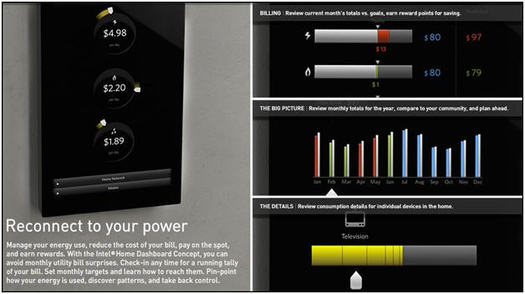How deep can Intel get inside the smart grid?

I think a lot about which companies that I've been covering for zillions of years will be around 10 years from now, as the Internet moves into its next phase of innovation around things like machine to machine communications, which is sort of personified in the smart grid. If you think Microsoft and IBM and Hewlett-Packard are invincible, pause a moment to memorialize Digital Equipment Corp.
Clearly, many of the legacy IT companies -- IBM, Microsoft, SAP, Oracle, to name a few -- are all over the whole intelligent utility market like a bad suit. But what about that other kingpin of the personal computing movement, Intel, the company of the famous "Inside" motto. Clearly, the company hopes to be deep inside the smart grid.
Frankly speaking, I haven't really paid that much attention to what the company has been doing (my bad), but certain aspirations are obvious -- especially if you peer into the company's embedded systems division. It doesn't take much effort, for example, to imagine Intel technology within smart thermostats, such as this prototype intelligent home energy console. If you want to think more about this particular piece of technology, I advise reading this commentary by long-time tech industry analyst Jesse Berst, over at the Smart Grid News service.
There's a lot more to Intel's potential participation, though. Remember this is the company that bought one of the most influential companies in the embedded systems world, Wind River, which is found in more than 300 million different devices around the world. Wind River tech is used by Apple, HP, Boeing, Motorola, NASA, and Mitsubishi.
To me, one of the most intriguing aspects of the smart grid is the communications piece. A multiplicity of wireless technologies will be important, including WiMAX. Yes, WiMAX, which has real potential as a wireless communications method in metro areas and rural areas. Consider that General Electric, which is bound to be a big player in the smart appliance space, is now shipping products that support WiMAX.
The second you have WiMAX support, you open the possibility that smart grid information can be communicated over the broadband connections that are showing up in homes all across the United States. Which means, hmm, another potential service for cable companies and carriers to get into. It just so happens that Intel has been one of the IT industry's most staunch supporters of WiMAX.
So, when you think about well-known tech companies that have the potential to participate seriously in the smart computing movement, don't count out Intel. Its brand may not be prominently associated with the smart grid yet, but I'll bet it is only a matter of time.
